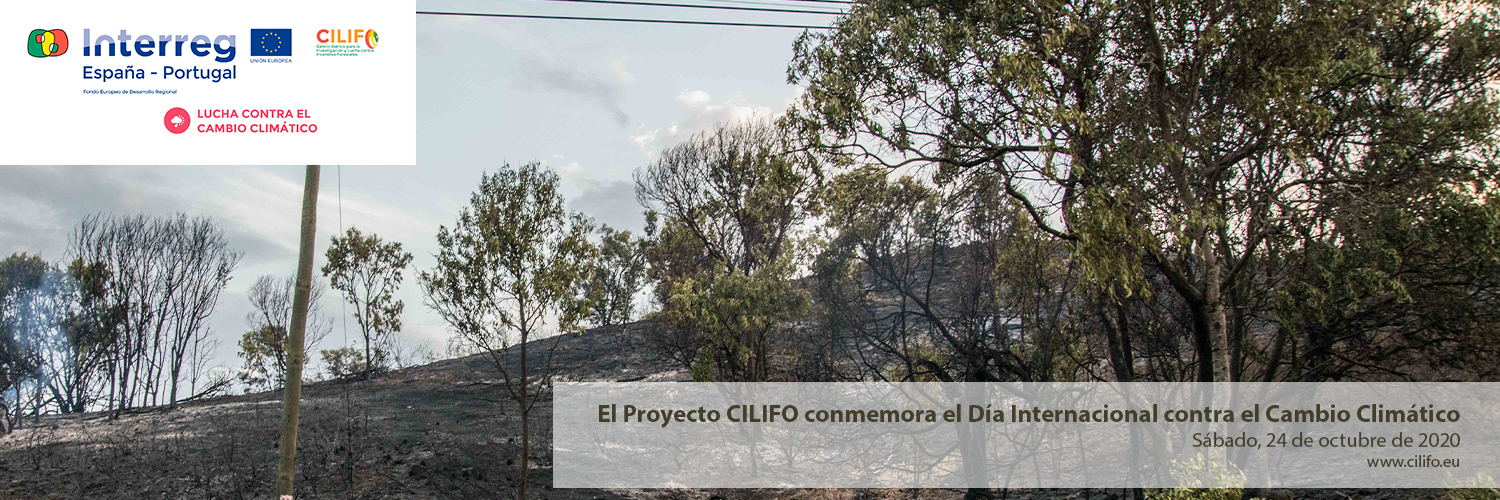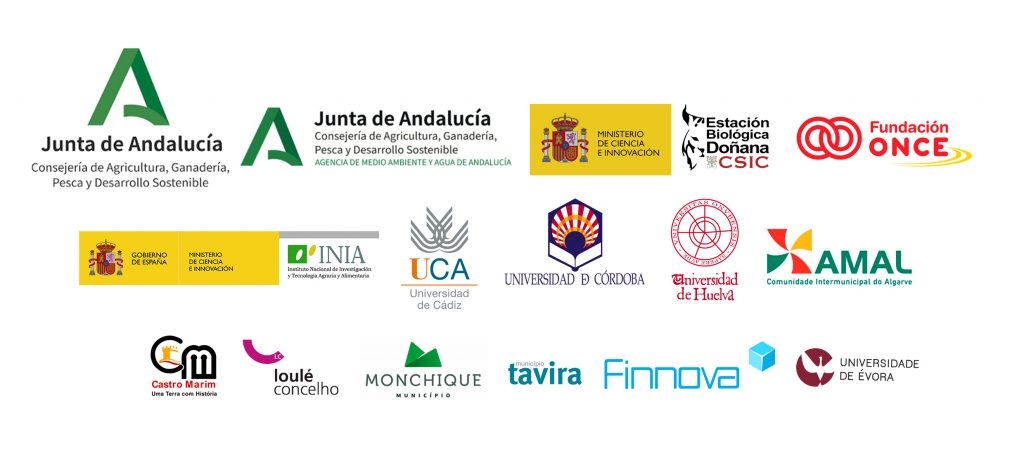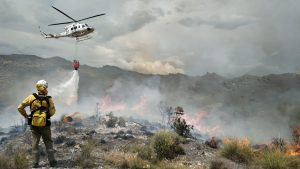
24.10.2020. Cada 24 de octubre se conmemora en todo el mundo el Día Internacional contra el Cambio Climático, esta celebración se instauró Organización de las Naciones Unidas (ONU) a causa de los grandes estragos que se están desatando en el planeta debido al cambio climático.
Según la web de la ONU: “Después de más de un siglo y medio de industrialización, deforestación y agricultura a gran escala, las cantidades de gases de efecto invernadero en la atmósfera se han incrementado en niveles nunca antes vistos en tres millones de años”. Además, la Organización de las Naciones Unidas explica que los efectos del cambio climático nos afectan a todos y “si no se toman medidas drásticas desde ya, será mucho más difícil y costoso adaptarse a sus efectos en el futuro”.
El proyecto “Centro Ibérico para la Investigación y Lucha contra Incendios Forestales” (CILIFO) se centra en la lucha contra los incendios forestales y sus consecuencias para la adaptación y mitigación del cambio climático; en un marco de cooperación transfronteriza para la prevención de riesgos y la mejora de la gestión de los recursos naturales de España y Portugal en la zona de la Eurorregión Alentejo – Algarve – Andalucía. CILIFO se enmarca en el Objetivo Temático 5 del Programa POCTEP: Promover la adaptación al cambio climático en todos los sectores; y responde a la prioridad de inversión, respecto al Programa POCTEP, 5B: Fomento de la inversión para abordar los riesgos específicos y la garantía de adaptación frente a las catástrofes y desarrollo de sistemas de gestión de catástrofes.
La prevención es una de las principales acciones de lucha contra los incendios forestales, y agrupa entre otras, a acciones destinadas a la sensibilización de la población ante la problemática de los incendios forestales (“prevención social”). La educación y sensibilización ambiental es un complemento a las políticas y actuaciones ambientales. Sin la implicación activa y comprometida de los todos los miembros de la sociedad, las estrategias medioambientales llevadas a cabo por organismos públicos y privados no serían suficientes para afrontar los retos que nos presenta el cambio climático. Por ello, conocer los mecanismos del fuego, la forma en que los dispositivos de extinción y las nefastas consecuencias de estos, es un eslabón fundamental de la cadena que nos lleva a su prevención.








